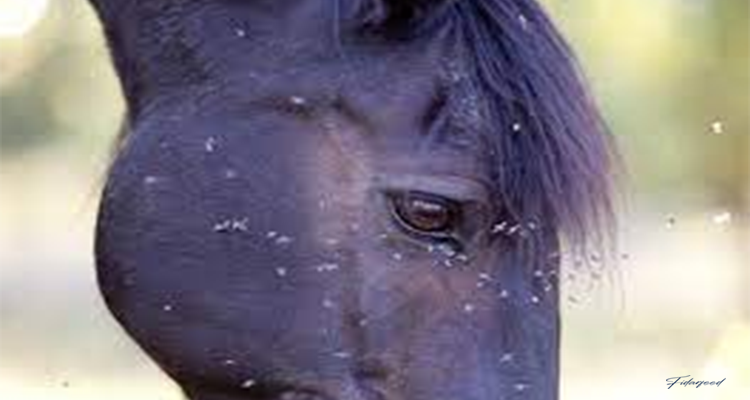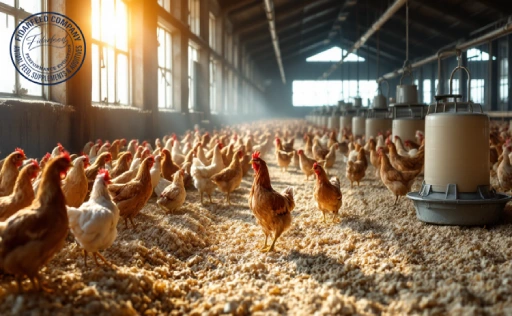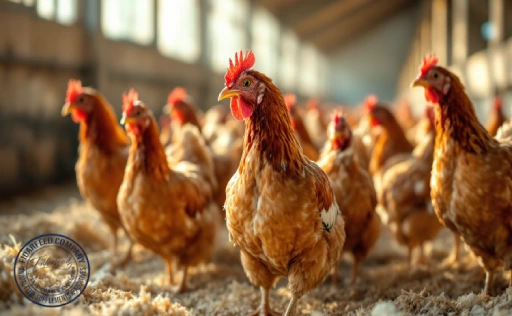Nile Fever, also known as West Nile Virus (WNV), is a serious disease that can have devastating effects on horses. Understanding its symptoms and control methods is crucial for breeders to ensure the health of their animals and maintain productivity. While the disease is transmitted through mosquito bites, it can have significant consequences if not properly managed. In this article, we’ll dive into the importance of recognizing Nile Fever early, the key symptoms to watch for, how the disease spreads, and most importantly, effective methods for controlling and preventing it. Let’s get started.
Why Understanding Nile Fever in Horses Is Crucial for Breeders
For horse breeders, maintaining the health of the herd is top priority. Nile Fever is a viral disease that can impact the overall health, productivity, and quality of life for affected horses. Without prompt and effective management, infected horses can suffer from long-term neurological damage or even death. By understanding the symptoms and control methods of Nile Fever, breeders can reduce the risk of outbreaks and minimize the impact on their business.
Learn more about: Probiotic Supplement for Horses and foals
This is particularly important in regions where mosquitoes, the primary vectors for the virus, are abundant. Horses that are infected may exhibit a range of symptoms, from mild fever to severe neurological issues. These effects can result in costly treatments, lost time, and in some cases, permanent disability for the animals. As a breeder, the more knowledge you have about the virus, the better equipped you’ll be to protect your animals and ensure long-term success.
What is Nile Fever? Understanding the Disease and Its Impact on Horses
Nile Fever, or West Nile Virus, is a mosquito-borne illness caused by the West Nile Virus (WNV). The virus primarily affects birds, but horses and humans can also become infected. In horses, the virus typically leads to neurological symptoms due to inflammation in the brain and spinal cord. The disease can range from mild to severe, with some horses recovering fully while others may experience long-lasting effects.
Learn more about: Holsteiner Horses: Strength and Stamina for Heavy Work
The virus spreads through the bite of an infected mosquito. When a mosquito feeds on an infected bird, it picks up the virus and can then pass it along to a horse, human, or another bird when it bites again. Though many horses exposed to the virus don’t show symptoms, some may develop significant health problems, making it important for breeders to be vigilant.
Understanding Nile Fever is essential because the symptoms can often be confused with other neurological diseases. Early detection is critical for effective treatment and to reduce the risk of spreading the virus to other horses.
Symptoms of Nile Fever in Horses: Early Signs Every Breeder Should Watch For
The symptoms of Nile Fever in horses can vary greatly depending on the severity of the infection. Early identification of these symptoms can make all the difference in successful treatment. Here are the key signs breeders should watch for:
-
Fever: One of the first signs is typically a sudden fever. This can be the body’s response to the viral infection and can be measured using a thermometer.
-
Neurological Symptoms: Affected horses often display signs of neurological distress, such as uncoordinated movements, weakness, and an inability to stand or walk properly.
Learn more about: Essential Tips to Prevent skin diseases in horses
-
Muscle Tremors or Paralysis: Horses may experience muscle tremors, which can lead to partial or full paralysis in severe cases.
-
Depression: Infected horses often appear lethargic or depressed, showing little interest in food or interaction.
-
Swollen Legs or Edema: Swelling, especially in the lower limbs, can be a visible symptom of the virus.
If you notice any of these symptoms, it’s crucial to consult a veterinarian immediately. The sooner you catch the infection, the better the chances for effective treatment and recovery.
How Nile Fever Spreads in Horses: Key Risk Factors and Transmission Routes
Nile Fever primarily spreads through mosquitoes, but understanding the various risk factors can help breeders take steps to protect their horses. The virus is carried by infected mosquitoes that feed on birds. These mosquitoes can transmit the virus to horses through their bites, especially in areas where mosquito populations are high.
-
Mosquitoes as Vectors: Mosquitoes breed in standing water, and areas with large water bodies or marshy regions are more likely to harbor these insects. Mosquitoes typically become infected by feeding on birds that carry the virus.
-
Infected Birds: While birds are the main reservoir for the virus, any bird species can carry it. Horses are incidental hosts, meaning they don’t spread the virus to other horses, but they can suffer the effects once infected.
-
Climate and Geography: Warm climates with ample rainfall create ideal breeding conditions for mosquitoes. Horses living in such environments are at a higher risk.
Learn more about: Best Feed for Young Horses: Nutrition Tips for Healthy Growth and Development
Understanding these transmission routes allows breeders to identify areas with a higher risk of exposure and take steps to protect their animals accordingly.

Effective Control Methods for Managing Nile Fever in Horses
There are several ways to control Nile Fever and minimize the risk of an outbreak in your herd. Preventive measures can go a long way in keeping your horses safe:
-
Vaccination: One of the most effective ways to protect horses from Nile Fever is vaccination. Vaccines for West Nile Virus are available and highly effective at preventing infection. Most horses should receive a West Nile virus vaccine annually, particularly if they live in high-risk areas.
-
Mosquito Control: Reducing mosquito populations around your farm is essential. This can be done by eliminating standing water where mosquitoes breed and using insect repellents or sprays around the stable and pasture.
Learn more about: Choosing the Right Horse Breed for Breeding: A Comprehensive Guide
-
Fly Traps and Nets: Fly traps and mosquito nets are effective tools for controlling mosquitoes. Installing them around stables and barns can significantly reduce exposure.
-
Monitoring and Surveillance: Keep an eye on any early signs of the disease in your horses. Regularly monitor for symptoms and check for mosquito activity near your farm.
By implementing these control methods, breeders can significantly reduce the risk of Nile Fever outbreaks and protect their horses from the virus.
Treatment Options for Horses Infected with Nile Fever
While there is no specific antiviral treatment for West Nile Virus in horses, supportive care can help improve the chances of recovery. Here’s what to expect in treatment:
-
Veterinary Intervention: Consult a veterinarian immediately if you suspect your horse has Nile Fever. The vet will likely recommend anti-inflammatory medications to reduce brain swelling and may suggest fluids to maintain hydration.
-
Symptomatic Treatment: Treatment typically involves managing symptoms like fever and weakness. Pain relief and supportive care are essential, as the horse’s immune system fights off the virus.
-
Recovery and Rehabilitation: With prompt treatment, many horses recover from the virus, although some may experience long-term effects such as coordination problems or muscle weakness.
Learn more about: The Hidden Stress in Horses: How Human Actions Affect Welfare
It’s important to follow your veterinarian’s advice closely to help the horse recover and minimize any lasting damage.
Prevention Is Key: How to Protect Your Horses from Nile Fever
The best way to deal with Nile Fever is to prevent it. Here are some preventive measures to consider:
-
Vaccination: As mentioned earlier, annual vaccination is crucial to protecting horses from the virus. Consult your vet to determine the best vaccination schedule.
-
Reduce Mosquito Exposure: Keep horses indoors during peak mosquito activity (early morning and evening). Also, install screens and use mosquito repellents to limit exposure.
-
Environmental Management: Remove standing water from around your farm to reduce mosquito breeding sites. This can include cleaning gutters, draining ponds, and maintaining ditches to avoid stagnant water.
Learn more about: The Ultimate Guide: How to Treat Gingivitis in Horses and Prevent Recurrence
By incorporating these proactive measures, breeders can ensure their horses are well-protected against Nile Fever and other mosquito-borne diseases.
Final Thoughts: Ensuring the Health of Your Horses with Proper Nile Fever Management
In conclusion, Nile Fever is a serious viral disease that can significantly impact the health of your horses. Understanding its symptoms, transmission, and control methods is essential for maintaining a healthy and productive herd. Through vaccination, mosquito control, and early detection, you can minimize the risks and keep your horses safe.
Breeders should remain vigilant and proactive in managing their horses’ health. By following best practices for prevention and treatment, you can safeguard your horses against Nile Fever and ensure the longevity of your farming operations.
Breeding and raising healthy, thriving horses requires effort and awareness. By staying informed and taking the necessary steps to protect your animals, you’re investing in their well-being and the future of your farm.











